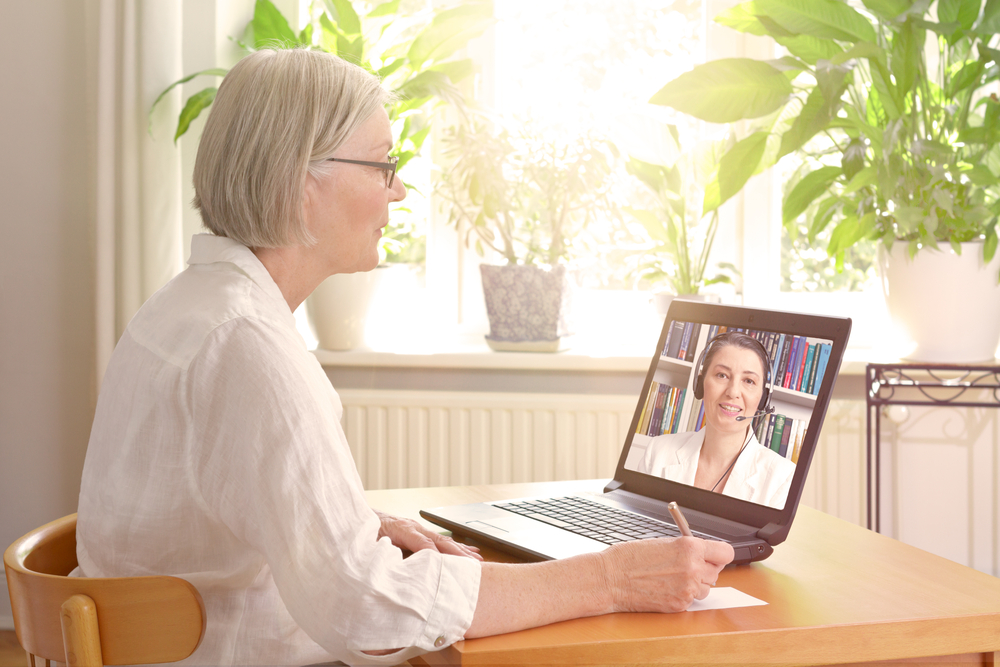On a near daily basis, there seems to be a news article detailing the impact of the coronavirus pandemic on individuals’ mental health. Providers, clinicians, and researchers worry both about the immediate impact of social isolation, but also on the longer-term consequences of economic disaster and seclusion on our well-being. Mental health has already been referred to as a “second wave” of issues related to the pandemic.
As humans, we are collectively living through an unprecedented moment in time and, as such, it is easier than ever to understand all the ways that mental health could be impacted by the global pandemic.
But has the coronavirus — and everything associated with it — really changed mental health forever?
The answer is complicated but, in short, yes, mental health probably has changed as a result of the current pandemic. However, like all change, there will also likely be some positive aspects to how we approach mental health and wellness post pandemic.
The Importance of Mental Health and Wellness
One thing that is apparent is how much emphasis the global pandemic has placed on the importance of mental health. As people across the world struggle to maintain safe physical distancing to protect against contracting the coronavirus, there are simultaneous threats to mental, social, and emotional well being.
More than ever before, there are conversations in the media about ways to cope with the mental health-related impacts we all face because of the pandemic. From the fear and uncertainty associated with potentially contracting the virus, to the ongoing concerns about job and economic stability, individuals across the world are uniquely and personally affected by the pandemic.
The cumulative effects of the stress associated with the pandemic are likely to have long-lasting effects that ripple across society. Even when the threats to physical health posed by the virus abate, the threats to mental health will remain. Post pandemic, individuals across the world will need to readjust to their lives and to determine their path forward — in a sense, they will look to find their new normal.
The importance of mental health treatment and support during this time cannot be overstated; those navigating post-pandemic life will likely benefit from exploring ways to address all of the thoughts and feelings associated with living through the collective trauma that we’ve endured.
The coronavirus outbreak has also exposed huge rifts in our social safety net and further highlighted the gulf of inequality between rich and poor. For many, these realities impact not just how they concretely experience the pandemic, but also add cumulatively to the emotional and psychic toll of this tragedy. The brunt of the virus has not been felt equally, but has predictably fractured along racial and economic lines.
On the positive side, more individuals are now attending to their mental health needs. There are considerably more conversations in the news and across media outlets about self-care, mental health, and the importance of therapy. Athletes, celebrities, and other prominent figures are sharing their own experiences with mental health treatment in a way that normalizes the experiences of seeking therapy. The increased attention on mental health will likely lead to a decreased stigma associated with mental health treatment.
The Role of Distance-Based Mental Health Services
Now, more than ever, being able to connect with a mental health professional while also maintaining a safe physical distance is a vital, potentially life-saving service. Moving forward post-pandemic, the role of distance-based mental health services will likely have a larger role in treating the mental health needs of society. Indeed, online therapy is now the dominant mode through which we access mental health care.
As we continue to responsibly physically distance over the next few months, perhaps even years, it will be important to simultaneously attend to our mental health needs. Those individuals who have begun to access mental health services will likely see the value in continuing these services as they navigate life post-pandemic. The influx of therapists who are now trained to provide distance-based therapy services, and the number of users who want these types of services, will likely increase the use of digital mental health services in the future.
Our Need for Human Connection
As we’ve practiced physical distancing, it has become apparent how important it is for us to stay emotionally connected. The lessons learned from the pandemic have underscored how important it is to maintain a sense of emotional connection with friends, family, co-workers, and those who occupy special places in our life.
Perhaps one of the biggest changes to our mental health post-pandemic is a greater emphasis on socially connecting with those who are important to us. The requirement of physical isolation has led to feelings of despair and disconnection; however, as we begin to move forward, there is now space to deepen those relationships and build a stronger sense of community and connection.
We now know how important seeing friends and family is. But also baseball games, bars, our favorite hole-in-the-wall restaurant, beaches, parks, our daily commute, coworkers silly looks after long meetings, holidays, running to the mall for ice cream. It’s unlikely we’ll take these things for granted the next time we’re able indulge in them.
As a world, we are currently experiencing a collective trauma; but, through trauma often comes resiliency. As a global community, we have an opportunity to make meaning of this experience, to move through it together and, in a sense, recover from this difficult time with a renewed sense of hope and inspiration.
Originally published on Talkspace.
More from Talkspace:
What to Expect From Your First Online Therapy Experience
How To Maintain Independence While in a Relationship
5 Signs of Acute Stress Disorder
Follow us here and subscribe here for all the latest news on how you can keep Thriving.
Stay up to date or catch-up on all our podcasts with Arianna Huffington here.


